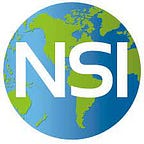Federal and State Transparency Reforms to Expose Malign Foreign Influence–Part I
By Dan Lips, NSI CTC Fellow
This piece is the first a two-part series that will explore how the Federal and state governments are working to reform transparency rules to expose malign foreign influence in policy discussions. In this first piece, I will examine the Federal efforts to reform transparency rules. In the second, I will examine the state efforts to reform transparency rules.
In Washington, D.C. and in state capitals across the country, lawmakers are considering new laws to improve transparency about foreign lobbying and advocacy in the United States. These promising efforts could expose malign foreign influence activities and allow policymakers to be better positioned to address national security threats posed by foreign adversaries by understanding who they are meeting with when on different policies.
On Capitol Hill, a bipartisan coalition of senators are backing several legislative reforms to amend the Foreign Agents Registration Act (FARA) and the Lobbying Disclosure Act (LDA). While these laws have been on the books for decades, they have well-known loopholes and weaknesses that lobbyists and foreign interests can use to avoid disclosure.
Enacted in 1938, FARA requires people representing “foreign principals,” including foreign governments, political parties, companies, and individuals, to disclose those relationships with the U.S. government. In 1995, Congress enacted LDA, which consolidated and updated existing lobbying disclosure rules, including by reforming FARA. Congress intended this law to clarify FARA’s applicability to lobbyists representing foreign interests, citing broad exemptions and lax enforcement that allowed lobbyists to “avoid the burden of FARA registration.” A key change was establishing an exemption from FARA for the “lobbyists of foreign corporations, partnerships, associations, and individuals” who were now required to register under LDA.
In 2016, the Inspector General reviewed DOJ’s enforcement of FARA, which included just seven criminal cases between 1965 and 2015, and found that the Department “lacks a comprehensive FARA enforcement strategy, and that such a strategy should be developed and integrated with the DOJ’s overall national security efforts.” The Inspector General explained that the DOJ believed that the more burdensome disclosure requirements of FARA, as well as the ability to register under LDA, reduced the number of FARA disclosures and posed a challenge for DOJ enforcement. The Inspector General recommended that the DOJ study LDA exemption and determine whether legislative reforms were needed. In 2023, the Department of Justice announced that it would issue regulatory changes for FARA to be announced in April.
In 2017, Senator Chuck Grassley and now-Speaker Mike Johnson introduced the Disclosing Foreign Influence Act that sought to reform FARA. (The House Judiciary Committee approved the House bill, but it did not receive a floor vote. The Senate Foreign Relations Committee did not consider the legislation.)
In December 2020, Senator Chuck Grassley presented another FARA reform bill on the Senate floor, making a live request for unanimous consent to pass the bill but Senator Robert Menendez objected, citing concerns about process and the scope of the reforms. In his objection, Senator Menendez stated that a “committee markup is the appropriate vehicle” for developing legislation on FARA reform, and said he was “ready and willing” to work with Senator Grassley and others at the committee level. However, under Chairman Menendez’s leadership, the Senate Foreign Relations Committee took no action on Senator Grassley’s bill both when it was introduced during the 117th Congress and when it was reintroduced last April. In September 2023, Senator Menendez stepped down from his position as chairman of the Committee after being charged by the Justice Department as acting as a foreign agent.
While FARA reform stalled, the Senate passed two bills last year that would amend LDA to improve transparency about foreign lobbying. The Lobbying Disclosure Improvement Act, sponsored by Senators Gary Peters and Grassley, would require lobbyists registering under LDA to indicate whether they believe they are exempt from FARA. This indication requirement is designed to help the DOJ review foreign lobbying filings and take investigative action if necessary. Along with six bipartisan cosponsors, Senators Peters and Grassley also sponsored the Disclosing Foreign Influence in Lobbying Act, which would tighten LDA disclosure rules and require lobbyists to disclose “any participation of a foreign government or political party” in lobbying activities. Both bills passed the Senate in June of 2023 and were held at the desk in the House. Speaker Johnson now has an opportunity to pass these bills on suspension or encourage the appropriate committee of jurisdiction to take up the legislation.
The Senate Foreign Relations Committee should hold a mark-up to consider the various FARA reform proposals, including Senator Grassley’s bill, the Retroactive Foreign Agents Registration Act (sponsored by Senators Grassley, Peters, Rubio, Young, and Warren), and the PAID OFF Act of 2023 (sponsored by Senators Cornyn, Whitehouse, and five others). Together, these bills could present a comprehensive FARA reform package, while the mark-up process would allow fair hearing for those concerned about potential changes. In 2022, the Department of Justice sent letters of support for the FARA reform legislation, which indicates that the White House could support a comprehensive reform effort if passed by Congress.
Part II of this series will examine related state reforms.
Dan Lips is a Fellow with the National Security Institute Cyber and Tech Center at George Mason University’s Antonin Scalia Law School and he is the Head of Policy at Foundation for American Innovation.
